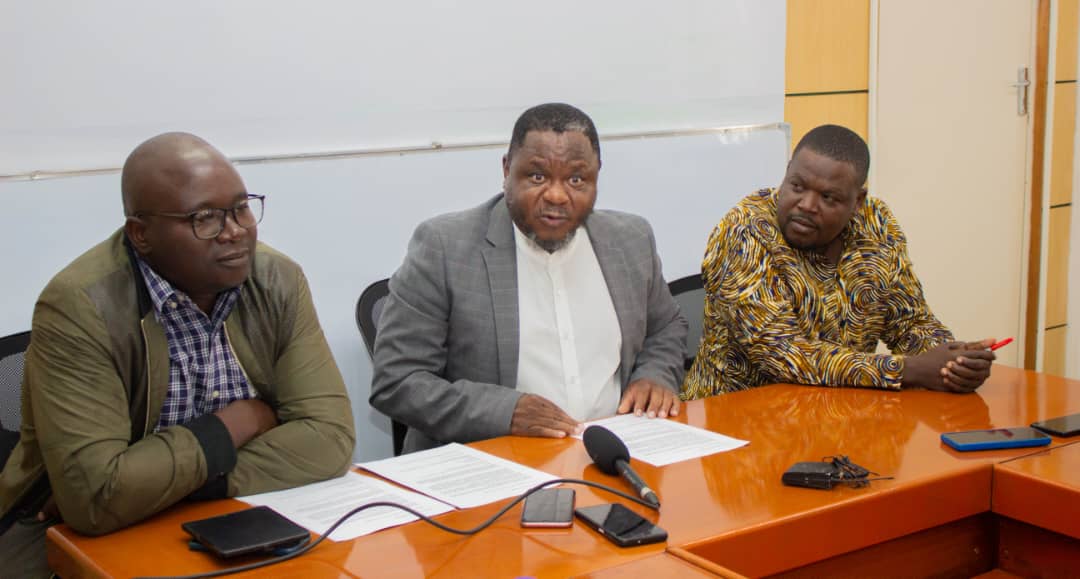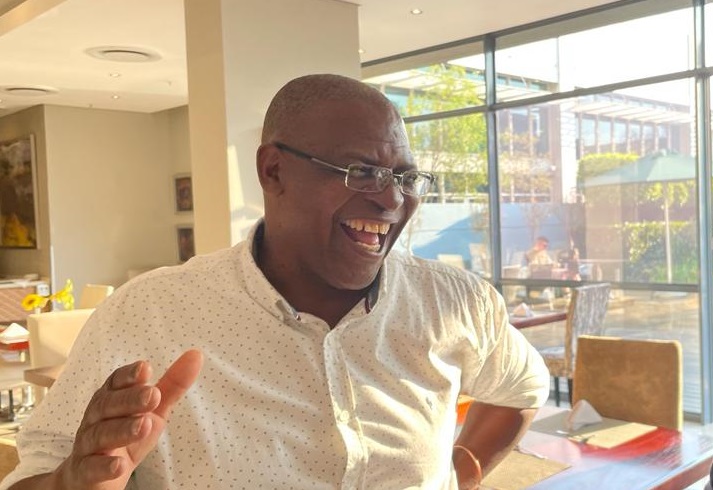HARARE – Zimbabwean scientists on Thursday said they have discovered a cure for Alzheimer’s disease, and also announced that they have developed a groundbreaking treatment for melanoma, a skin cancer.
Professor Simon Mukwembi, the lead scientist on the project, said through a computer system they are calling Rutava, they have discovered a chemical compound which targets only malignant cancer cells and does not interfere with healthy cells in the human body, raising hopes of a cure for all cancers.
The research, conducted with support from the University of Witwatersrand and the University of Johannesburg in South Africa, was limited to the treatment of melanoma and Alzheimer’s, he said.
He told journalists at a news conference in Harare: “The good thing that Rutava does is you can recalibrate it for other diseases. So, for the cancer, we’ve got quite a number of cancers, right? What we have worked on right now is melanoma skin cancer. But of course, we can extend out to sort out all the other cancers without difficulty because we now have the innovative technology.
“… We also developed, using the Rutava, a cure for Alzheimer’s disease.”
There are over 55 million people worldwide living with Alzheimer’s, the most common type of dementia. This number is projected to almost double every 20 years, reaching 78 million in 2030 and 139 million in 2050. Much of the increase will be in developing countries.
While melanoma is not the most virulent of cancers, an estimated 330,000 new cases were diagnosed worldwide in 2022 and almost 60,000 people died from the disease.
Prof Mukwembi said Rutava was a “digital technology based on artificial intelligence, machine learning and mathematical formula.”
He said the technology would short-circuit the time lag between discovery and the development of a drug from several years to just months.
He added: “I’m pleased to say we used Rutava to discover drugs for treatment of different diseases. First there is cancer. We’ve got a compound that can target only cancerous cells in the human body.
“Currently, the difficulty is that the available cancer drugs target both the cancerous cells and the healthy normal cells. Rutava only targets the cancerous cells. About 10 million people died of cancer in 2020 and the same number in 2023. So you can see the market for the cancer drug is huge the world over.”
Prof Mukwembi, who is the chairman of the Harare Institute of Public Health (HIPH), was flanked by the institute’s principal Dr Amos Marume and its registrar Dr Isaac Mutingwende.
Prof Mukwembi said while they were confident that their technology had made it possible to cure cancer and Alzheimer’s, they still needed to subject their findings to clinical trials.
“It’s virtually automatic (Rutava), and it keeps improving the parameters, it keeps improving each time you use it. Because when you are analysing a dataset of a lot of molecules, you are also training the algorithm to be much better the next time,” Prof Mukwembi said.
“Averagely, the traditional drug discovery process would take you 15 years and maybe US$3 billion for just one compound. Our technology is disruptive in that it greatly makes it much, much possible for the Global South to be able to turn itself into a pharmaceutical giant of the world because it’s cheaper in terms of time.
“The technology will take just a few months to run through just the screening of a molecule, up to formulation studies and clinical trials. So, it does help in all those. Turning 15 years to a year, this shows it’s disruptive technology in the pharmaceutical value chain.”
Other scientists working on the project are Dr Eloise van der Merwe, Prof Farai Nyabadza, Professor Yasien Sayed, Professor Betsie Jonck, Professor Eunice Mphako-Banda, Dr Ronnie Maartens, Moster Zhangazha, Neo Padi, and Thabelo Mulenga.
Dr Marume said while their discovery would be patented, their share of future profits would be diluted because they needed funding to develop the drugs and treatments.”
“To get to a drug, it requires money. The clinical trials would require to be funded. So that’s where some people will then probably end up co-owning the patent, because they will have supported those elements which are important,” he said.
















